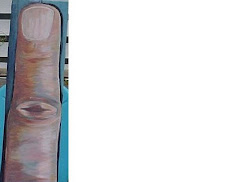 |
| Escher Sketch |
It is true that the discussion of corruption and its ramification on the polity has my entire approval, yet my mind revolts against the vague remedy of hope in a future life offered by the religionists as they tear apart every scheme that promises to deliver a better one to those still living. Schopenhauer comes nearer to the truth. He too took his stand on the iniquity and rottenness of the world; he too cried out in anguish that "Verily it is a pitiful thing to live on earth!", preaching the nullity of existence, the advantage of solitude, and warned humanity that whatever it did, whichever way it turned, it would always remain unhappy - the poor because of the sufferings born of privation, the rich because of the unconquerable boredom engendered by abundance. The difference between them being that Schopenhauer offered no panacea, beguiled you with no promises of a cure for your inevitable ills.
He did not drum into your childhood ears the revolting dogma of original sin; he did not try to convince you of the superlative goodness of god who protects the wicked, helps the foolish, crushes the young, brutalizes the old, and chastises the innocent; he did not extol the benefits of a Providence which has invented the useless, unjust, incomprehensible, and inept abomination that is physical pain. Instead he exclaims in his compassionate indignation that, "If a god has made this world , I should hate to be that god, for the misery of the world would break my heart." (As if a Divine Being would have need of one).
As the great unwind proceeds it seems less wise of the Left to pretend that the remnants of a tattered philosophy of progress can be stitched together into anything but a veil of tears behind which to hide society as it really is, filled with pitfalls and disillusionment in which you are to consider yourself lucky if you are not constantly visited by some unforeseen calamity: a mysterious maze through which one must pluck one's way via unlikely bypaths best navigated with an attitude of resignation and drift.
However, this resignation is frankly based on the recognition of a deplorable state of affairs and the impossibility of effecting any change, and hence is a difficult attainment for the poor, whose lives reflect the sorry state of affairs on a daily basis, and so who are more easily appeased by the kindly voice of atavistic religion promising them rewards for their privations and punishment for the wealthy's greedy self-absorption.
So it seemed helpful to cultivate what was already an excessive fondness of flowers into a passion, since, to stave off the victory of enervating pessimism, everyone must be passionate about something in the 21'st century, as it is, apparently, as anyone interviewing for a job these days knows, only while in this state of emotionally heightened excitability that one's statements are taken to have any veracity, profundity, or, indeed, relevance.
This floral affection began with the embrasure of all flowers without distinction of species or genus, only slowly becoming more discriminating, even to the point of limiting oneself to a single caste, that one being, more usually, as most often it is the well-heeled who are able to maintain the delicate balance of environmentally staid and nutriment-rich atmosphere necessary, orchids.
Because it becomes inevitable that Corporate hothouse-grown varieties from insecticide-drenched milieus will lead to the common everyday varieties being despised, as they are seen in sidewalk vendors' stalls and supermarket aisles, in wet flowerpots and under green awnings or red umbrellas.
Just as one's literary tastes and artistic preferences become more refined, recognizing only such works that have been sifted and distilled by subtle and tormented minds, and at the same time instilling such a strong distaste for accepted ideas that it hardens into disgust, the love of Flowers will rid itself of its residuum, its lees and become clarified, c'est a dire, and purified.
Thus will a flower store be transformed into a horticulturist's shop in which a microcosm of the plant world includes representatives of every social category and class - poor, vulgar slum-flowers, the geranium, for instance, that are really at home only on the window-sill of a garret or the metal staircase of a fire-escape, with their roots squeezed into coffee-cans or snaking through cracked earthenware pots; then pretentious, conventional, stupid flowers such as the rose, whose proper place is in pots concealed inside porcelain vases painted in stifling Asian sweatshops by dirt-poor peasant girls lured into city slums from their rural degradation with visions of lipstick and high heels, but ending up in urban blight and factory enslavement; and lastly, flowers of charm and tremulous delicacy, exotic flowers exiled to Suburbia where they are kept warm in palaces of glass, princesses of the vegetable kingdom, living aloof and apart, having nothing whatever in common with popular plants or bourgeois blooms.
Now, whereas one can't help but feel a certain interest, if not affinity bordering on pity, for the lower-caste flowers, wilting, as they do, in the slums under the foul breath of sewers and sinks, it is equally difficult not to loath those that sit like ceramics in cream-and-gold sitting rooms that nobody sits in in the McMansions of the nouveau-riche, so that admiration is instead reserved for the rare and aristocratic plants from distant lands, kept alive with cunning attention in artificial tropics created by carefully regulated central heating controlled by a Gestapo-like monitoring of thermostats.
Unlike days of yore, when the taster for the artificial and the rigors of east coast winters left living plants' survival tenuous and therefore led to a neglect of real flowers in favor of its copy, faithfully, and seemingly miraculously, executed in india rubber and wire, calico and taffeta, paper and velvet, plastic and hot glue. This resulted in a wonderful collection of plants, fashioned by the hands of true artists, following Nature step by step, repeating her processes, taking the flower from its birth, leading to its maturity, imitating it even to its death, noting the most indefinable nuances, the most fleeting aspects of its awakening or its sleep, observing the pose of its petals, blown back by the wind or crumpled by the rain, sprinkling its corolla with dewdrops of gum, and adapting its appearance to the time of year - in full bloom when branches are bent under the weight of sap, or with a shriveled cupula and a withered stem when petals are dropping off and leaves are falling.
This astute artistry has long held sway, but now my dreams are turned to collecting another kid of flora: tired of artificial flowers aping real ones, it became essential to discover, living as I do, in the land predominated by the Calla Lily, natural flowers that look like fakes. A foyer filled with plants that look as if cloth, paper, porcelain, and metal have been lent to Nature to enable her to create unnatural monstrosities all intermingling but breathing not a scent of perfume, but, as if copying the membranes of animals' organs, borrow the tints of their rotting flesh and the hideous splendors of their gangrened limbs.
Thus are horticulturalists proven to be the only true artists left to us these days, and the collecting of their oeuvres, the ultimate collectors' guilding the lily, the beginning of a gallery where you can see more of the hanging garden and the genesis of my own, watering-can free, Literal Shop of Horrors.



















































No comments:
Post a Comment